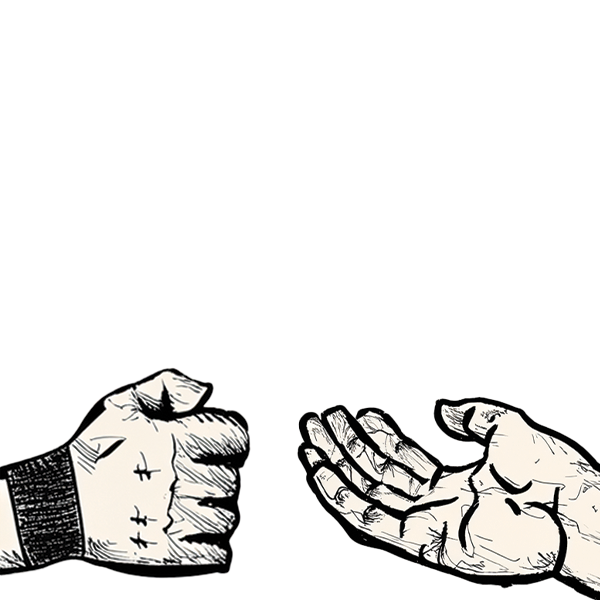Dehumanizing our rivals cannot lead to peace
By JOAQUIN WATERS —- jwat@ucdavis.edu
It’s easy to make a fist. There are so many reasons to be angry. Depressingly, there seem to be more reasons with each day that passes. There is a feeling in the air — stronger with every passing year, it seems — that society, both global and domestic, is speeding toward a reckoning of some kind. Global fascism is on the rise, political infighting has become the norm and our time in isolation has left us more alienated than ever.
It’s natural to want to embrace anger. At this point, what other avenues are there to enact the social change we dream of? To turn the world into a better, more equal place? In such a touchy environment, it’s easy to forget that sometimes the most profound thing we can do is to lay down our weapons and try to connect with someone — even someone opposed to us. I’m sure that many reading this are rolling their eyes. But I implore you to hear me out before making a final judgment.
I’m a pacifist, but not to a dogmatic extent. Though I abhor violence, that doesn’t mean I deny its necessity at certain times. There are those among my tribe who believe that non-violence is always the answer, but I don’t believe that is the case. There are moments in history when change must be forced. But more often than not, change happens slowly, one person at a time — and this is true of both positive and negative change.
Bigoted and fascistic ideologies grow like a cancer in societies, overtaking one person at a time until they have metastasized to the point of being fatal. I believe the reverse is also true: one small act of kindness will not in itself save the world; but just like hate, kindness spreads. With each small act of kindness or understanding toward those who oppose us, a little bit of that cancerous hate dies away. We need fighters but, though their praises are less sung, we also need healers.
The next time you find yourself engaged in a heated debate over something you find extremely important, take a moment to look your opponent in the eye and say, “I disagree, but if you promise to try and understand why I feel the way I do, I promise to do the same.” How someone responds to this says a lot about who they are: if they reject or belittle the proposal, then they have merely proven your point and given you the moral high ground. If they accept, though, you may find that the line between enemy and friend need not be so clearly delineated.
What I’m advocating for is easier said than done. But that is exactly why it’s so important. It is always easier to punch a jerk in the face than to try and change their mind or to ask them why they feel the way they do. But I firmly believe that it is the responsibility of those who stand against hate not to dehumanize our enemies and to remember that all hate stems from fear. If all we do is feed into the fears of our enemies, we risk further alienation. Of course, it goes without saying that sometimes people are beyond forgiveness or understanding — but not always. And really, what do we have to lose by leading with kindness? Only our pride, which, as they say, goes before a fall.
In this spirit, I will give the last word to two great men who dedicated their lives to fighting racism in America their way.
Just before his execution at the onset of the Civil War, extreme abolitionist John Brown wrote these words: “I […] am now quite certain that the crimes of this guilty land will never be purged away but with blood.”
Daryl Davis, a contemporary figure who has spent much of his life showing members of the Ku Klux Klan the error in their racist ideologies and convincing them to lay down the robe, gives a counterargument: “When two enemies are talking, they’re not fighting. It’s when the talking ceases that the ground becomes fertile for violence. If you spend five minutes with your worst enemy […], you will find that you both have something in common.”
There is truth in both statements and the wisdom of lives spent combating evil. But Davis’ words are just as brave, and I confess it is those words I take more to heart. It’s easy to make a fist. It’s harder — but equally necessary — to extend an open palm and say, in total honesty, “I come in peace.”
Written by: Joaquin Waters — jwat@ucdavis.edu
Disclaimer: The views and opinions expressed by individual columnists belong to the columnists alone and do not necessarily indicate the views and opinions held by The California Aggie.




